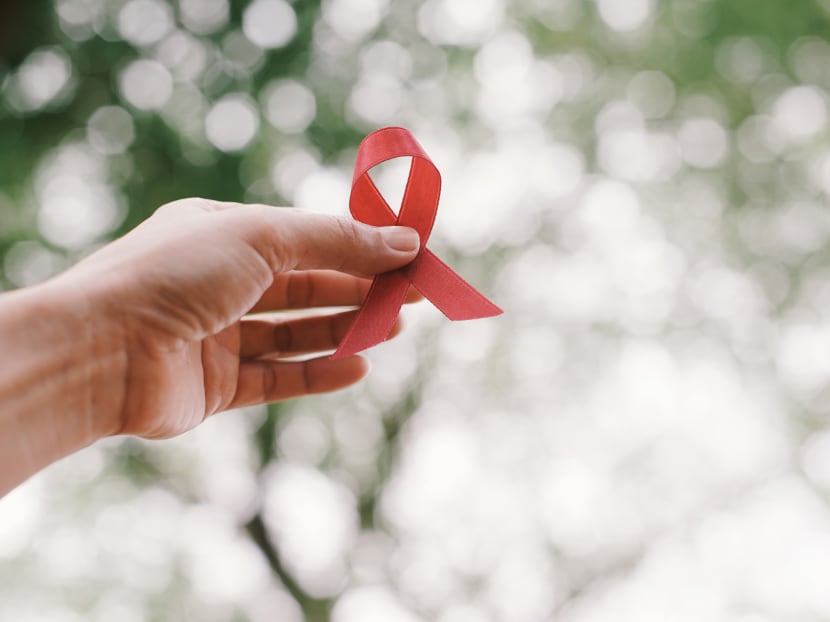Blueprint unveiled to end HIV transmission and AIDS in Singapore by 2030
SINGAPORE — A non-governmental organisation has published a blueprint which it hopes can help end the transmission of human immunodeficiency virus (HIV) in Singapore by 2030.
SINGAPORE — A non-governmental organisation has published a blueprint which it hopes can help end the transmission of human immunodeficiency virus (HIV) in Singapore by 2030.
The document, published on Saturday (Nov 23) by Action for AIDS (AFA), describes the current issues in Singapore and outlines gaps in services, and includes recommendations that communities delivering HIV programmes and services feel needs to be done to end HIV transmission and acquired immune deficiency syndrome (AIDS) in Singapore.
Titled “Community Blueprint: Ending HIV Transmission and AIDS in Singapore by 2030”, it is the collective work of about 30 community organisations and groups, which includes medical professionals, academia and members of the HIV-positive community.
The blueprint focuses on six groups in Singapore that are most affected by the virus: Men who have sex with men, high-risk heterosexual men, sex workers, transgender persons, intravenous drug users and people who use drugs.
Here are some details from the document, which was inspired by a similar blueprint produced by the Australian Federation of AIDS Organisations.
SINGAPORE’S KEY HIV STATISTICS AS OF 2017
Total persons living with HIV: 7,982
Total deaths: 1,960
New infections among men who have sex with men: 262
New infections among heterosexual men: 155
Late-stage detection of HIV infection: 45 per cent
Diagnosis through routine programmatic HIV screening: 27 per cent
Self-initiated HIV screening: 23 per cent
MEN WHO HAVE SEX WITH MEN
Data from the Ministry of Health estimates that 60 per cent of new HIV infections in 2017 involves gay, bisexual and queer men.
However, the document says current intervention efforts, such as those by the AFA, are able to reach only about 30 per cent of an estimated 210,000 people in this category.
Some of the risk behaviours in this group include having multiple sex partners and low condom use. The document says that men in this category who have experienced discrimination due to societal prejudice often do not access available healthcare services.
HIGH-RISK HETEROSEXUAL MEN
The document estimates that the number of high-risk heterosexual men in Singapore is 360,155.
This comprises men who engage in casual and paid sex. Only around 25 per cent of these men have received HIV prevention information and services provided by the AFA.
A worrying trend is that condom use is much lower for casual sex than for commercial sex.
“This is of concern because female casual partners are cited much more frequently than female sex workers as primary contacts of STIs (sexually-transmitted infections) in Singapore,” reads the document.
Moreover, only one-third of men in this group have undergone voluntary HIV testing either due to a self-perceived low risk of contracting the disease, or because of associated stigma.
THE HIDDEN POPULATION
Sex work has shifted from brothels to entertainment establishments, the document states, with more than three quarters of those in the latter providing sexual services.
It adds that about half of the female entertainment workers sold sex, with a quarter engaging in casual sex.
Research found that only a quarter of these individuals undergo screening for STIs, which is largely attributed to a lack of education, screening and treatment services targeting them because of the criminalisation of sex work in entertainment establishments.
They are not regulated, unlike sex workers.
Consequently, it becomes a challenge for organisations to reach out to them with HIV information and services.
COORDINATED APPROACH AND SUPPORT NEEDED
Ms Sumita Banerjee, the executive director for AFA, said many cities have fast tracked their AIDS response to end AIDS as a public health threat by 2030.
“We feel Singapore can join the ranks of these cities given its unique position with a small but highly literate population,” she said. “With a more coordinated approach and with the right support we can see an end to HIV.”
Among the suggestions that the blueprint is recommending is increasing the number of clinics designated to be HIV anonymous testing sites from 10 to 30 over the next three years.
These additional clinics could potentially reach out to more than 400,000 at-risk individuals, which the document says will greatly increase the rate of voluntary testing, early diagnosis, and links to care.
Having access to newer HIV medication is also part of the recommendations.
Ms Banerjee said that these medications, such as pre-exposure prophylaxis (PrEP), have less side effects and has been found to be effective in stopping HIV transmission.
But having access to both facilities and medication will mean nothing if the stigma and discrimination that a person living with HIV faces are not stamped out.
Otherwise, Ms Banerjee said it will serve as a barrier to both testing and treatment adherence, which in turns contributes to the low rates of voluntary HIV testing and high rates of late diagnosis — both of which contribute to new infections.
“We need to create an enabling environment that promotes testing among those who would not otherwise test and get the information out on the effects of early treatment,” she said.
Ms Vanessa Ho, the executive director of Project X, said the blueprint was an opportunity for organisations working on HIV issues to come together, map the services provided, and chart their impact.
“It was also an opportunity to find new alliances and to commit to working together for common goals,” said Ms Ho, whose organisation serves as a rights group for sex workers.
“It’s been more than 30 years since we learnt of HIV, and hopefully it will be the last 10 years we spend working on it on this scale,” she said.









